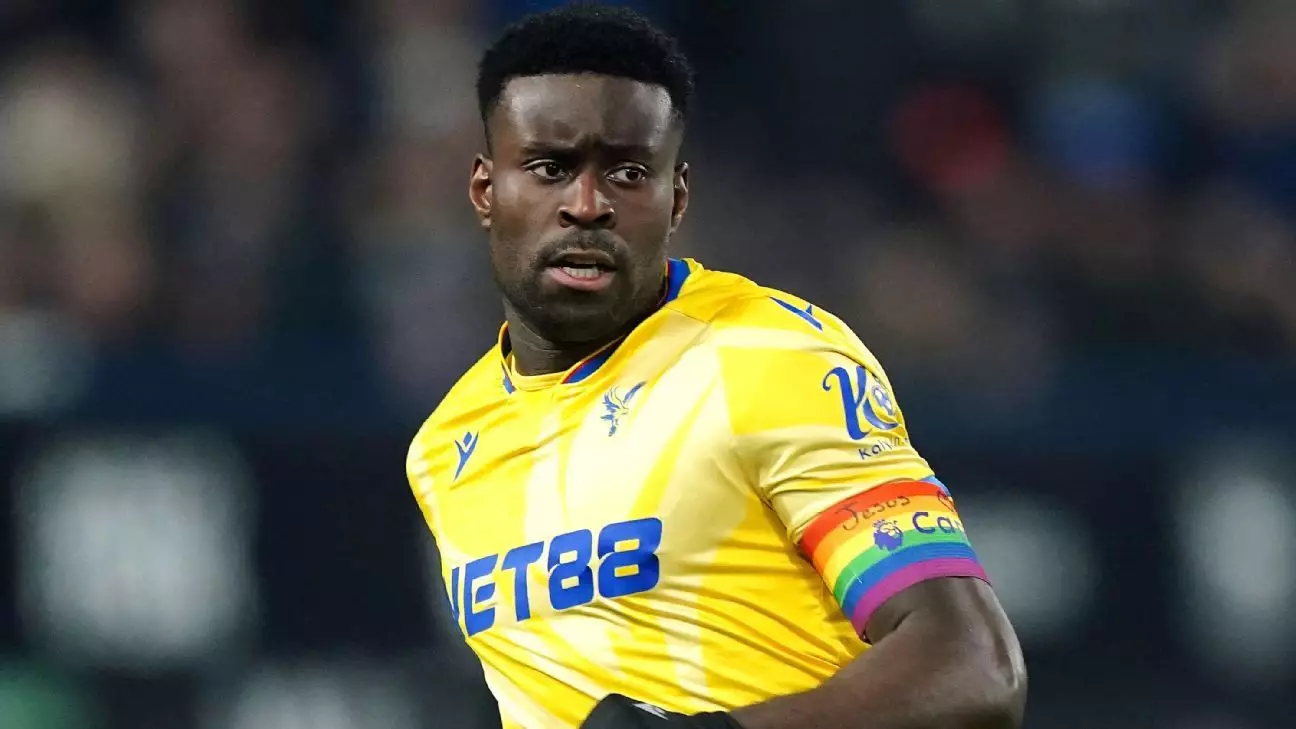In the increasingly intersectional world of sports and social issues, recent events involving Crystal Palace defender Marc Guéhi have drawn both attention and debate. During a match against Ipswich Town, Guéhi inscribed “Jesus loves you” on his rainbow-coloured captain’s armband, a gesture tantamount to an expression of personal faith. This came despite prior reminders from England’s Football Association (FA), which enforces strict regulations regarding religious messaging on football attire, particularly within the realm of LGBTQ+ support.
The rainbow armband is not merely a piece of fabric; it represents a larger movement, encapsulating the spirit of inclusivity fostered by Stonewall’s Rainbow Laces campaign. Designed to signal support for the LGBTQ+ community, the armbands are intended to enhance solidarity and signify the game’s recognition of diversity. However, Guéhi’s addition of a personal religious message has sparked controversy, raising questions about the coexistence of faith and activism within the sport.
According to the FA’s kit and advertising regulations, all players must adhere to guidelines that prohibit the display of personal or religious messages. Specifically, Rule A4 states that clothing must not bear any form of statement that could distract from the guidelines of simplicity and compliance established within Law 4 of the game. The FA intends to maintain a level playing field, ensuring that the focus remains squarely on the sport rather than individual beliefs.
Through the enforcement of these regulations, the FA seeks to prevent any player from using the field as a platform for personal ideologies, which could incite division, especially in a sport as widely followed as football. The tension between Guéhi’s choice and the FA regulations highlights an ongoing struggle: how to balance individual expression with the collective ethos of the game.
Notably, Ipswich midfielder Sam Morsy abstained from wearing the rainbow armband, opting instead for the traditional black version, which has led to discussions around individual agency and belief systems within sports teams. The FA has stated that Morsy’s decision is a subjective matter, leaving room for players to reconcile their beliefs with team obligations independently. This highlights a broader narrative in professional sports—one that navigates personal faith and group identity.
While there are clear guidelines in place, the reactions from fellow players and the broader public reveal a spectrum of perspectives. Some laud Guéhi’s stance as a brave personal proclamation, while others view it as a potential infringement on collective values meant to foster inclusivity. This ongoing dialogue emphasizes the importance of community dialogue and mutual respect as central to sportsmanship.
As the worlds of sport and social advocacy continue to converge, the implications of Guéhi’s actions extend beyond the pitch. They serve as a reminder of the challenges that players face when attempting to honor personal beliefs while adhering to organizational standards. The balancing act between individual expression and a commitment to inclusivity presents a rich area for discussion, one that offers crucial lessons for the future of football and its role in societal change. As stakeholders from various backgrounds continue to engage in this conversation, it remains critical to define a path forward that respects both faith and unity in the sport.

